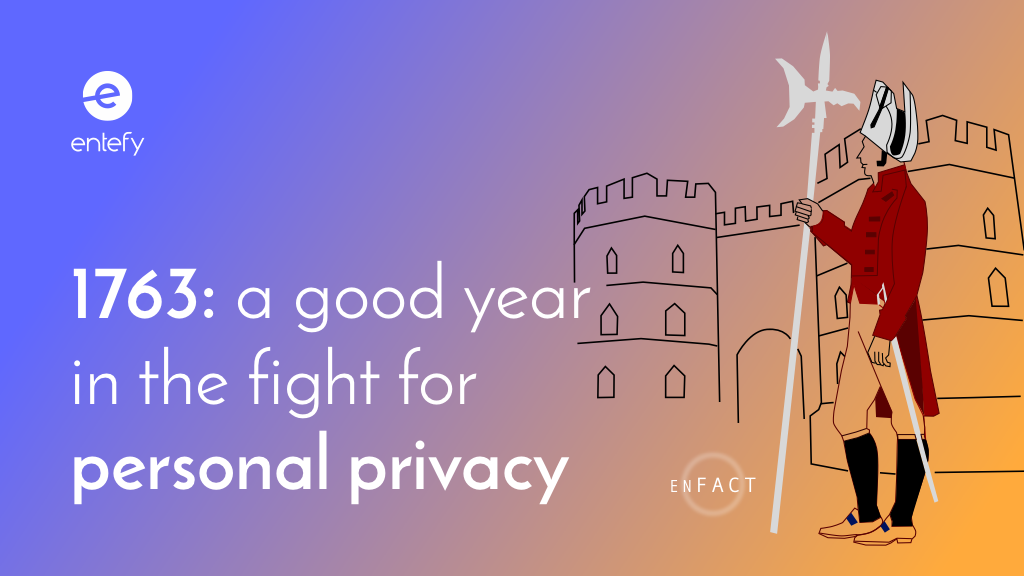The notion of protecting information privacy as a social construct dates at least as far back as the case of John Wilkes before the English Parliament in 1763. In a debate over the protection of privacy in the home of a private citizen, Charles Pratt, first Earl Camden, struck down a request for a warrant to enter the home and seize Wilkes’ papers.
Taking up these themes in the House of Commons, William Pitt delivered an eloquent defense of personal privacy:
“The poorest man may in his cottage bid defiance to all the forces of the crown. It may be frail; its roof may shake; the wind may blow through it; the storm may enter; the rain may enter; but the King of England cannot enter – all his force dares not cross the threshold of the ruined tenement!”
The shorthand for this principle is the maxim “each man’s home is his castle,” which has become a foundational idea supporting freedom of thought and expression. These words would later inspire the structure of the Fourth Amendment to the U.S. Constitution and the due process clause of the Fifth.
A person’s right to privacy is more important than ever, and people deserve to have the companies that handle their personal identifiable information protect and safeguard their data.Entefy’s enFacts are illuminating nuggets of information about the intersection of communications, artificial intelligence, security and cyber privacy, and the Internet of Things. Have an idea for an enFact? We would love to hear from you.
